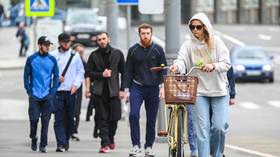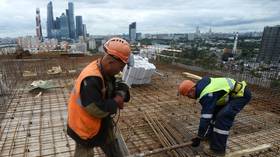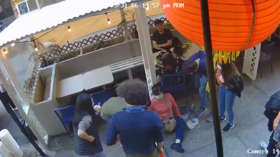Majority of Russians willing to pay higher taxes to provide improved services to country’s most poor & needy citizens, poll shows

A new poll has revealed that more than half of all the Russians surveyed would be willing to pay a higher percentage of their income in taxes if it resulted in an increase in social support for the nation’s neediest citizens.
That’s according to new research conducted by WCIOM, Moscow’s oldest polling company. The results revealed that 54% of those questioned would pay more tax if it guaranteed the expansion of free services – including education, health care, and security – to the country’s poorest. And 45% also revealed they’d support higher taxes if it improved overall access to a high quality of public services – not necessarily just for the neediest.
Both of these figures are considerably higher than the proportion of Russians who wish to pay less money in tax, with just 28% saying it should be as low as possible.
Also on rt.com Russia's post-pandemic economy: Pain for middle class, widening inequality, but rich will stay rich - experts tell RTCompared to the rest of Europe, Russia has a very low income tax rate. Until January 1 this year, it had a simple flat tax of just 13%, regardless of income level. Now, the government has introduced two separate tax bands, with a 15% tax bracket for those earning over five million rubles ($68,000) a year.
The decision to add an extra 2%, taken by President Vladimir Putin during the Covid-19 pandemic, was the first significant change to the personal tax rate in almost 20 years. A flat tax of 13% has been in place since 2001 and was one of Putin’s first major economic reforms, designed to lower tax evasion and enable the government to rely on a steadier stream of income.
According to the WCIOM, the vast majority of citizens (83%) approve of a progressive taxation scale, with just 13% supporting a flat rate. Those over the age of 60 were even more likely to agree with raising the percentage of tax on those with extra income (95%).
The support for higher taxes and a progressive rate is likely due to Russia’s high level of income inequality – a gap that has only widened during the pandemic. Speaking to RT last summer, Ivan Tkachev, the economics editor at leading Russian business newspaper RBK, opined that the pandemic would cause the middle class to shrink.
“Inequality will probably rise because the rich will stay rich, while the middle classes will become poorer,” he said.
If you like this story, share it with a friend!















